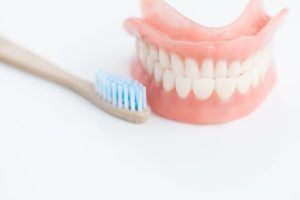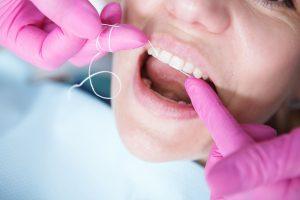Introduction
When it comes to dental health, many individuals wonder whether dentists would pull healthy teeth. The thought of losing a tooth, especially one that appears to be in good condition, can be worrisome. Further, in this article, we will delve into this topic and explore the reasons behind dentists’ decisions to extract seemingly healthy teeth. We will also discuss the importance of regular dental check-ups, the potential consequences of untreated dental issues, and how to maintain optimal oral health. So let’s dive in and gain a better understanding of this common concern.
Table of Contents
Why Would Dentists Consider Extracting Healthy Teeth?
- Tooth Crowding
- Orthodontic Treatment
- Impacted Wisdom Teeth
- Prevention of Future Issues
The Importance of Regular Dental Check-ups
- Early Detection of Dental Problems
- Preventive Measures
- Professional Cleaning and Maintenance
Consequences of Untreated Dental Issues
- Tooth Decay and Infections
- Gum Disease
- Bite Misalignment
- Overall Oral Health
Tips for Maintaining Optimal Oral Health
- Brushing and Flossing Techniques
- Balanced Diet for Dental Health
- Avoiding Harmful Habits
- Regular Dental Visits
Why Would Dentists Consider Extracting Healthy Teeth?
Tooth Crowding
First, one of the primary reasons dentists may recommend the extraction of seemingly healthy teeth is tooth crowding. Sometimes, the jaw does not have enough space to accommodate all the teeth properly. Additionally, this can lead to overcrowding, which may cause teeth to become misaligned or crooked. By removing one or more healthy teeth strategically, dentists can create the necessary space for the remaining teeth to align correctly, preventing potential complications in the future.
Orthodontic Treatment
In some cases, healthy teeth may need to be extracted to facilitate orthodontic treatment. When individuals require braces or other orthodontic appliances, it is common for dentists or orthodontists to remove specific teeth to create space and achieve the desired alignment. By doing so, the orthodontic treatment can be more effective, leading to better overall dental health and a more aesthetically pleasing smile.
Impacted Wisdom Teeth
Wisdom teeth, also known as third molars, typically erupt during the late teens or early twenties. However, due to limited space in the jaw, these teeth may become impacted, meaning they fail to fully emerge or grow in a proper position. Impacted wisdom teeth can lead to various issues, including pain, infection, and damage to adjacent teeth. Therefore, dentists often recommend extracting these healthy yet problematic teeth to prevent future complications.
Prevention of Future Issues
Dentists may suggest extracting healthy teeth as a preventive measure to avoid potential problems down the road. For example, if a tooth shows signs of decay or carries a high risk of developing cavities, removing it can prevent the spread of decay to neighbouring teeth. Additionally, extracting a tooth that may be at risk of fracture or has structural issues can save the patient from experiencing pain or further complications in the future.
The Importance of Regular Dental Check-ups
Early Detection of Dental Problems
Regular dental check-ups are essential for preserving optimal oral health. Dentists are trained to identify dental issues at their earliest stages, often before symptoms become noticeable. By detecting problems like tooth decay, gum disease, or bite misalignment early on, dentists can provide appropriate treatments, potentially saving healthy teeth from extraction.
Preventive Measures
During dental check-ups, dentists can take preventive measures to protect teeth and gums from potential damage. They may recommend dental sealants to prevent cavities, apply fluoride treatments to strengthen tooth enamel, or suggest custom mouthguards for individuals engaged in contact sports. These preventive interventions can help preserve the health of teeth and reduce the likelihood of extraction.
Professional Cleaning and Maintenance
Regular dental visits also involve professional cleaning by dental hygienists. These cleanings remove plaque, tartar, and surface stains that cannot be eliminated through regular brushing and flossing alone. By keeping teeth and gums clean, individuals can minimize the risk of dental issues that may require extraction in the future.
Consequences of Untreated Dental Issues
Tooth Decay and Infections
If dental problems such as tooth decay are left untreated, they can progress and lead to more severe consequences. Untreated decay can cause tooth infections, which may result in pain, abscesses, or the need for root canal therapy. In severe cases, extraction may become necessary to alleviate pain and prevent the infection from spreading.
Gum Disease
Neglecting proper oral hygiene can contribute to the development of gum disease, also known as periodontal disease. Gum disease can lead to gum inflammation, recession, and even tooth loss if left untreated. Besides regular dental care, including professional cleanings and early intervention, can help prevent gum disease and preserve healthy teeth. Meanwhile, to know how toothbrushes have come a long way to keep your teeth and gums healthy, read this.
Bite Misalignment
When dental issues such as tooth loss or misalignment are not addressed promptly, they can affect the bite. An improper bite can lead to difficulties in chewing, jaw pain, and even temporomandibular joint (TMJ) disorders. By addressing these issues early on, dentists can help maintain a healthy bite and prevent the need for tooth extraction in the future.
Overall Oral Health
Neglecting oral health can have a significant impact on overall well-being. Dental issues can cause discomfort, affect self-confidence, and interfere with proper nutrition due to difficulties in chewing. However, by prioritizing regular dental check-ups and promptly addressing any dental concerns, individuals can preserve their oral health and prevent the need for unnecessary tooth extraction.
Tips for Maintaining Optimal Oral Health
Brushing and Flossing Techniques
Maintaining optimal oral health requires adhering to proper techniques for brushing and flossing. It is crucial to brush your teeth a minimum of two times per day using a soft-bristle toothbrush and fluoride toothpaste. Moreover, make it a habit to floss daily, effectively eliminating plaque and food particles from the interdental spaces and the gum line.
Balanced Diet for Dental Health
Ensuring a proper diet is crucial in upholding optimal oral health. It is important to restrict the consumption of sugary and acidic foods and drinks, as they can promote the development of tooth decay. Instead, incorporate a variety of fruits, vegetables, lean proteins, and dairy products into your diet to ensure you receive essential nutrients for strong teeth and gums.
Avoiding Harmful Habits
Certain habits can harm your dental health. Avoid smoking and tobacco use, as they increase the risk of gum disease and oral cancer. Furthermore, limit your consumption of alcohol and carbonated beverages, as they can contribute to tooth enamel erosion and discoloration. Additionally, refrain from using your teeth as tools to open packages or bite hard objects, as this can lead to dental fractures.
Regular Dental Visits
Ensure you have dental check-ups scheduled either every six months or as advised by your dentist. Furthermore, these visits allow for the early detection of dental issues and preventive measures to maintain oral health. Professional cleanings and examinations ensure that any potential problems are addressed promptly, reducing the risk of tooth extraction. You can schedule your dental visits with Awesome Smiles VA, here.
Conclusion
To conclude, dentists may sometimes recommend the extraction of seemingly healthy teeth for various reasons such as tooth crowding, orthodontic treatment, impacted wisdom teeth, or preventive measures. However, regular dental check-ups, proper oral hygiene practices, and early intervention can help preserve the health of your teeth and reduce the likelihood of extraction. By prioritizing your oral health and seeking professional dental care, you can maintain a beautiful and healthy smile for years to come. Lastly, for any dental problems, you can contact us anytime.
FAQs (Frequently Asked Questions)
- Will extracting healthy teeth affect my bite?
Extracting a healthy tooth strategically, under the guidance of a skilled dentist, is unlikely to negatively impact your bite. In fact, in certain cases, it may even improve your bite by creating space for proper alignment. - Is it necessary to remove wisdom teeth if they don’t cause any problems?
While not all wisdom teeth require extraction, impacted wisdom teeth can lead to pain, infection, and other complications. It is best to consult with your dentist to assess the condition of your wisdom teeth and determine the most appropriate course of action. - Is it possible to preserve optimal oral health without undergoing regular dental check-ups?
No, it’s not, undergoing frequent dental check-ups is crucial for maintaining optimal oral health. Dentists can detect early signs of dental problems and provide preventive treatments that can help preserve your natural teeth and prevent the need for extraction. - Are there alternatives to tooth extraction for tooth crowding?
In some cases, orthodontic treatments like braces or clear aligners can help address tooth crowding without the need for extraction. An orthodontist can assess your specific situation and recommend the most suitable treatment option. - How can I prevent dental issues that may lead to tooth extraction?
Maintaining good oral hygiene practices, such as regular brushing and flossing, following a balanced diet, avoiding harmful habits, and scheduling regular dental check-ups, are key steps in preventing dental issues and reducing the likelihood of tooth extraction.




